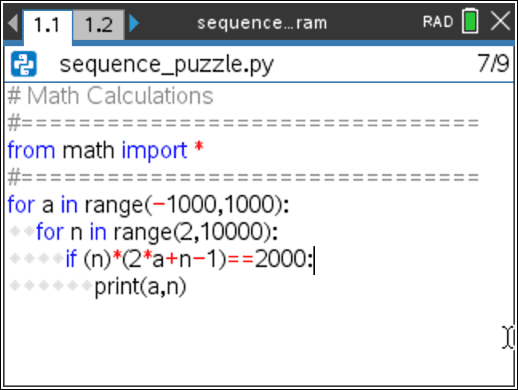Many teachers wonder how to incorporate inquiry-based learning in Maths education. Let explore the benefits and challenges of AI tools.
Artificial Intelligence (AI) is revolutionising the field of education, transforming the way we teach and learn. With its ability to analyse vast amounts of data and adapt to individual student needs, AI has the potential to personalise and enhance the educational experience. Intelligent tutoring systems can provide tailored feedback and support, guiding students through complex concepts at their own pace. AI-powered virtual assistants can assist both teachers and students in administrative tasks, grading, and answering questions, freeing up valuable time for more meaningful interactions. Additionally, AI can analyse student performance data to identify areas of improvement and provide targeted interventions, ensuring no student is left behind. By harnessing the power of AI, education can become more inclusive, engaging, and effective, preparing students for the challenges of the future.
Understanding AI in Maths Education.
AI Tools Overview.
ChatGPT
CoPilot
How can they assist in Maths education?
Benefits: the advantages of using AI, such as personalised learning, instant feedback, and the ability to handle repetitive tasks.
Challenges: potential issues like over-reliance on technology, data privacy concerns, and the need for teacher oversight.
Inquiry-based learning in Maths.
- Concept explanation: encouraging students to ask questions, explore and discover solutions on their own.
- Benefits: the development of critical-thinking, problem solving skills and deeper understanding of mathematical concepts.
- Challenges: the difficulty in assessing inquiry-based learning outcomes with the development of AI.
AI versus Inquiry Learning
AI can tailor learning experiences to individual students, while inquiry learning promotes self-directed exploration.
Inquiry learning fosters curiosity and active participation whereas AI provide engaging, interactive content.
In AI-assisted learning, teachers act as facilitators and monitors, while in inquiry learning, they guide and support the inquiry process.
Inquiry for deep learning to encourage deeper understanding and critical thinking.
How AI tools can be used to create inquiry-based learning activities?
Upcoming advancements in AI – will they further enhance Maths education?
Evolving Teaching Practices – the importance of continuous professional development for teachers to effectively integrate AI, technology and inquiry-based learning.
Generating Rich Maths Tasks
AI tools like ChatGPT, Co-Pilot can create complex, real-life maths problems that encourage students to explore and discover solutions.
These tasks can be tailored to different levels of difficulty and areas of interest.
Example 1
Ask AI for the program in Python to calculate Egyptian fractions, then enter this program on TI Nspire and run it for various fractions.
Can anyone do this given the syntax from the Copilot, for example?
Asking AI correct questions (prompting).
Understanding the concept.
Knowing what we want.
Comparing algebraic solutions to solutions given by the AI, in this case how the greedy algorithm works and how to apply it without the program.
Example 2
Can you find a sequence of positive integers that add up to 2000?
The problem seems easy to state but is it as easy to solve?
What mathematical techniques can we use to solve it?
What technology can we use to solve it?
However, to use technology, we need to set it up first.
- How many different solutions can you find that add to 1000?
- Can you prove that you’ve found them all?
- Can you find a sequence of consecutive integers that add up to any given number?
- Can you find numbers which can only be formed by one sequence of consecutive integers?
- Can you solve this problem using coding?
- So, with a mixture of mathematical formulae, prime factorisation, logic and trial and error we have our seven solutions.
- A good example of how mathematics is often solved in reality!
- Would AI suggest this particular method?
AI and assessment – challenges.
Artificial Intelligence (AI) is transforming the landscape of mathematics assessment in several impactful ways.
Here are some key areas where AI is making a difference:
- Automated Grading
- Personalized Learning
- Adaptive Assessments
- Feedback
- Cheating Detection
- Enhanced Engagement
AI is very high energy consumption.
Challenges and considerations
While AI offers many benefits, there are also challenges to consider. Ensuring the accuracy of AI systems, protecting student data privacy, and addressing biases in AI algorithms are critical issues that need to be managed.
Additionally, educators must balance the use of AI with traditional teaching methods to ensure a holistic learning experience.
AI is not a replacement for teachers but a powerful tool that can enhance the teaching and learning process.
By leveraging AI, educators can provide more personalized, efficient, and effective assessments, ultimately improving student outcomes.

